by Joe Dahl --
Electoral College
On March 14th a bill that will effectively do away with the Electoral College, passed out of committee at the Nevada Legislature.
The way it started was that the original states were reluctant to give power to a central government. They would each send representatives to congress and senators to the senate. They were comfortable with that. But when it came to electing a president, it was clear that the higher population states would have a huge advantage over the lower population states. And, with the fear of a strong central government, in order to achieve a union, on the method of electing a president, it was decided that each state would vote for that president.
That president would not be elected by the popular vote of all of the states combined. That method helped create the United States – of America. If we don’t allow each state to vote, to elect the president, then we are not, in that sense, united states anymore, but one very large state. And the small population states have a very small, even unheard, voice in electing the president.
On election night, as the news media show the national popular vote count, that does not really mean anything, it is just a matter of interest. The real interest is the vote count in each state, as it should be, because each state determines who that state will vote for, for president. We are still a union of the several states, with a common central government that represents us to the world, and deals with interstate affairs.
That central government was not originally involved much in domestic affairs, which was up to the states, the U.S. government dealt in foreign affairs. We have evolved to where the federal government is involved in most every part of our lives either directly or overlapping with most of what our separate states do. The Electoral College is one of the few processes that keep each state individual and independent.
We welcome your commentary, or letters to the editor -- please send to Commentary
Read more local news on the home page at The Fallon Post.
LATEST NEWS:

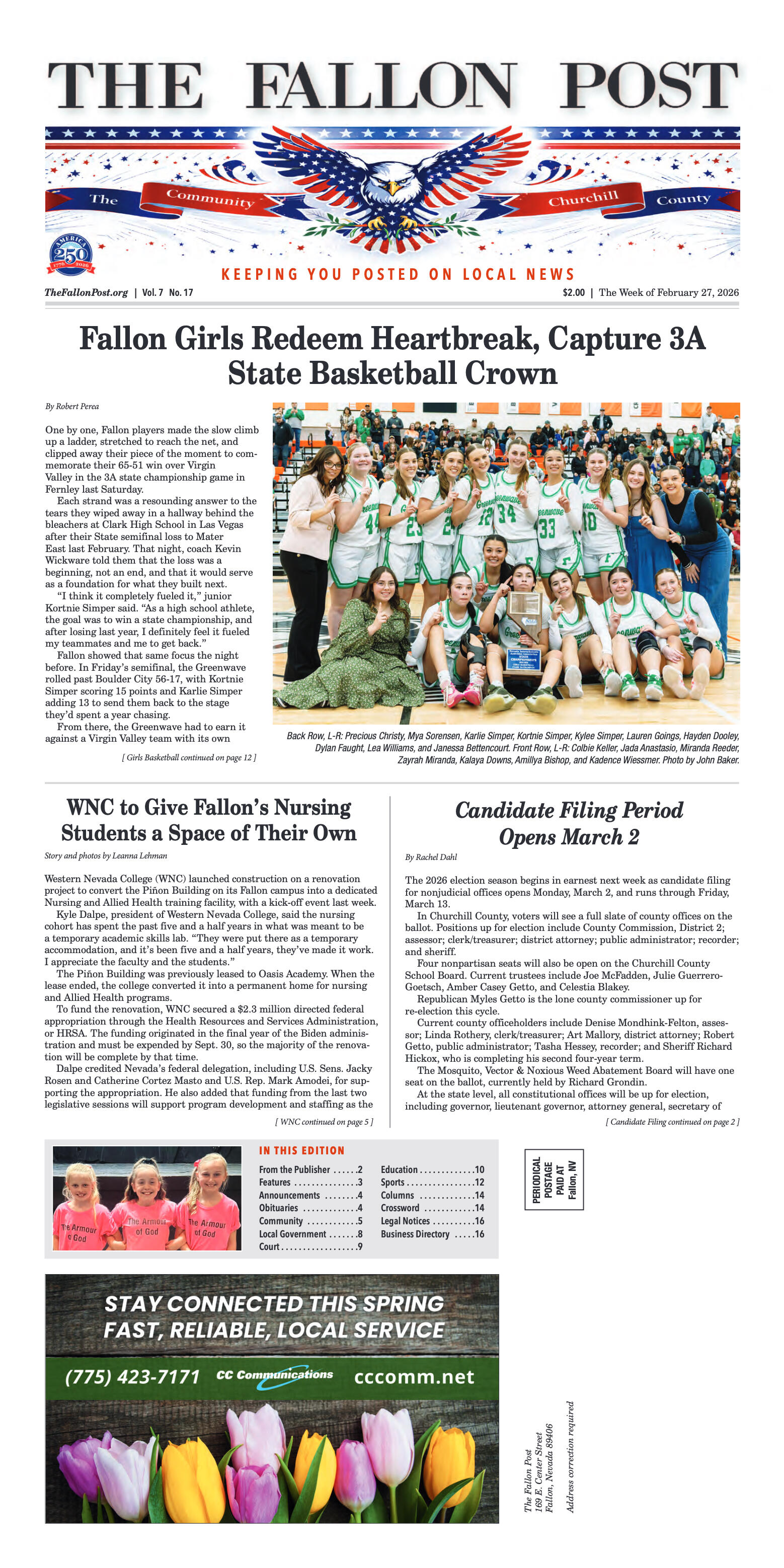
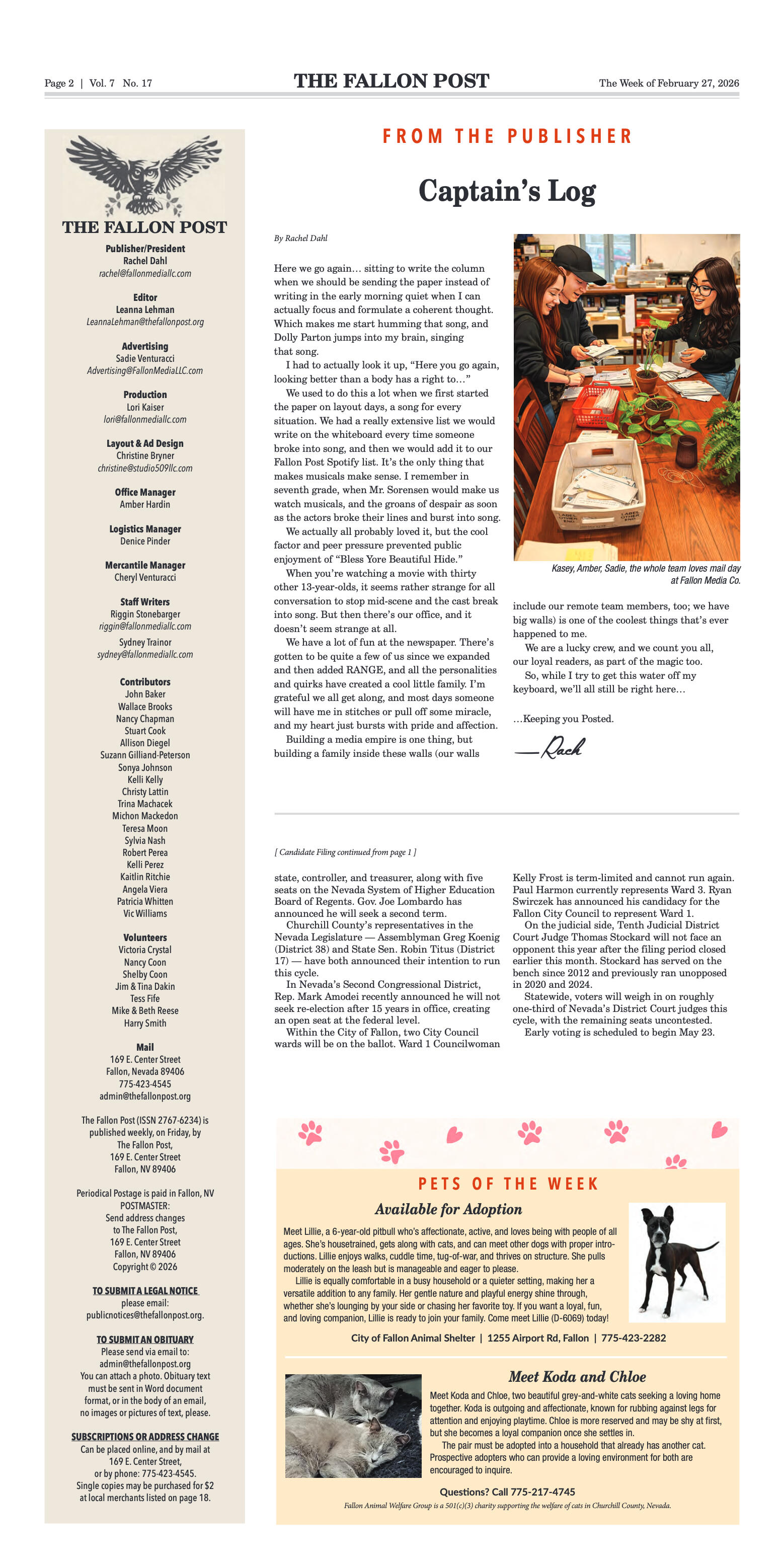
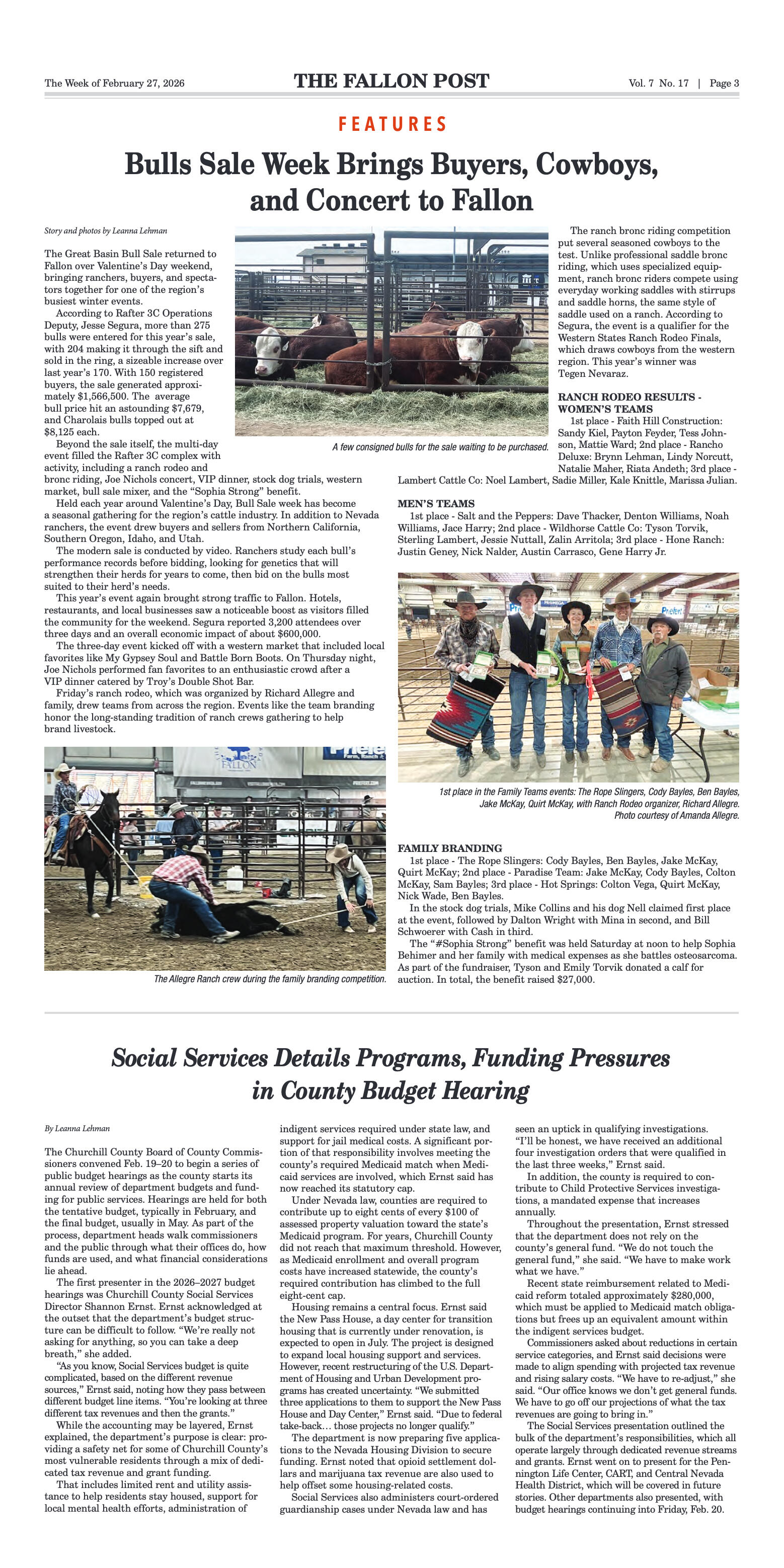
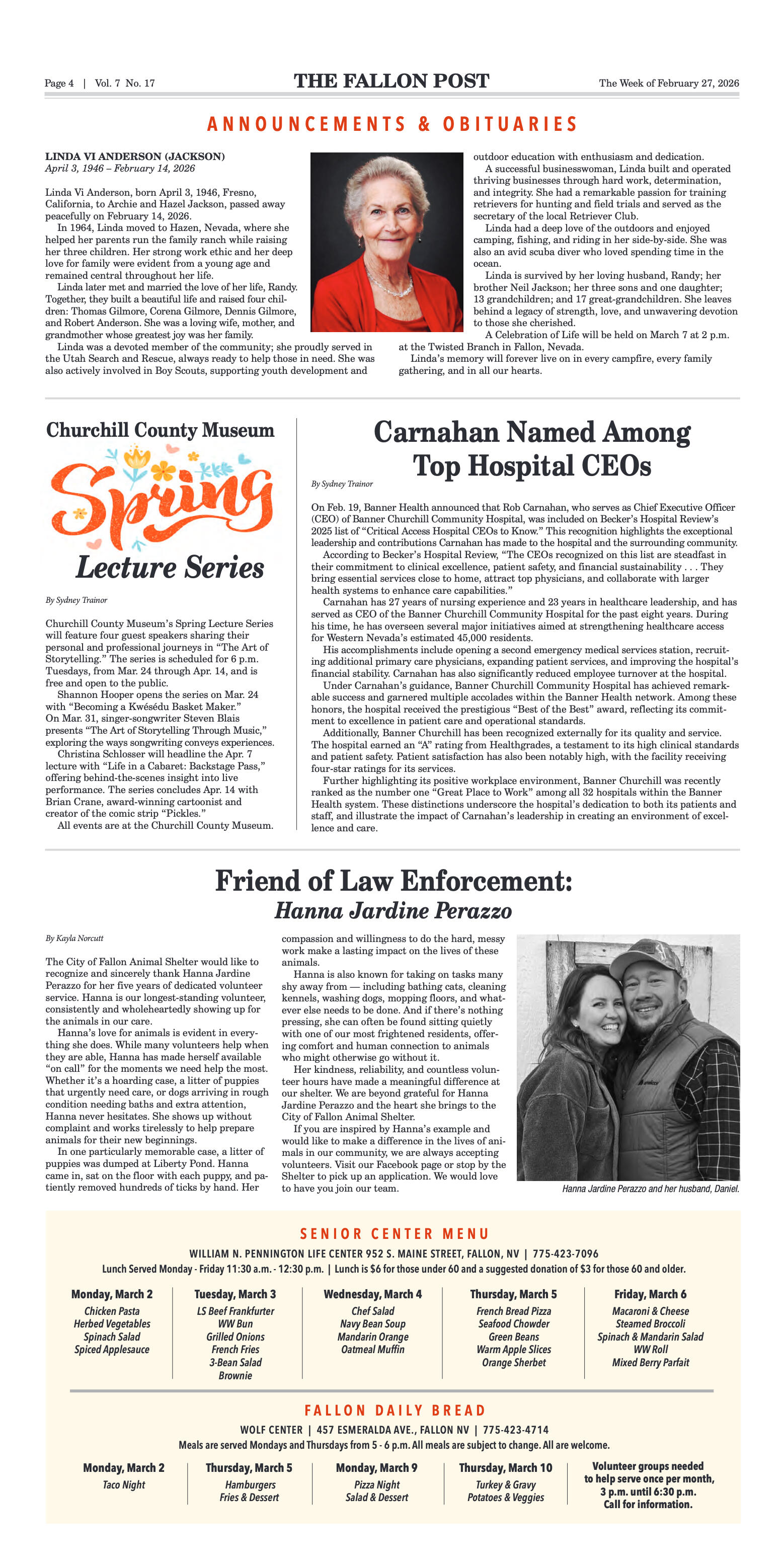
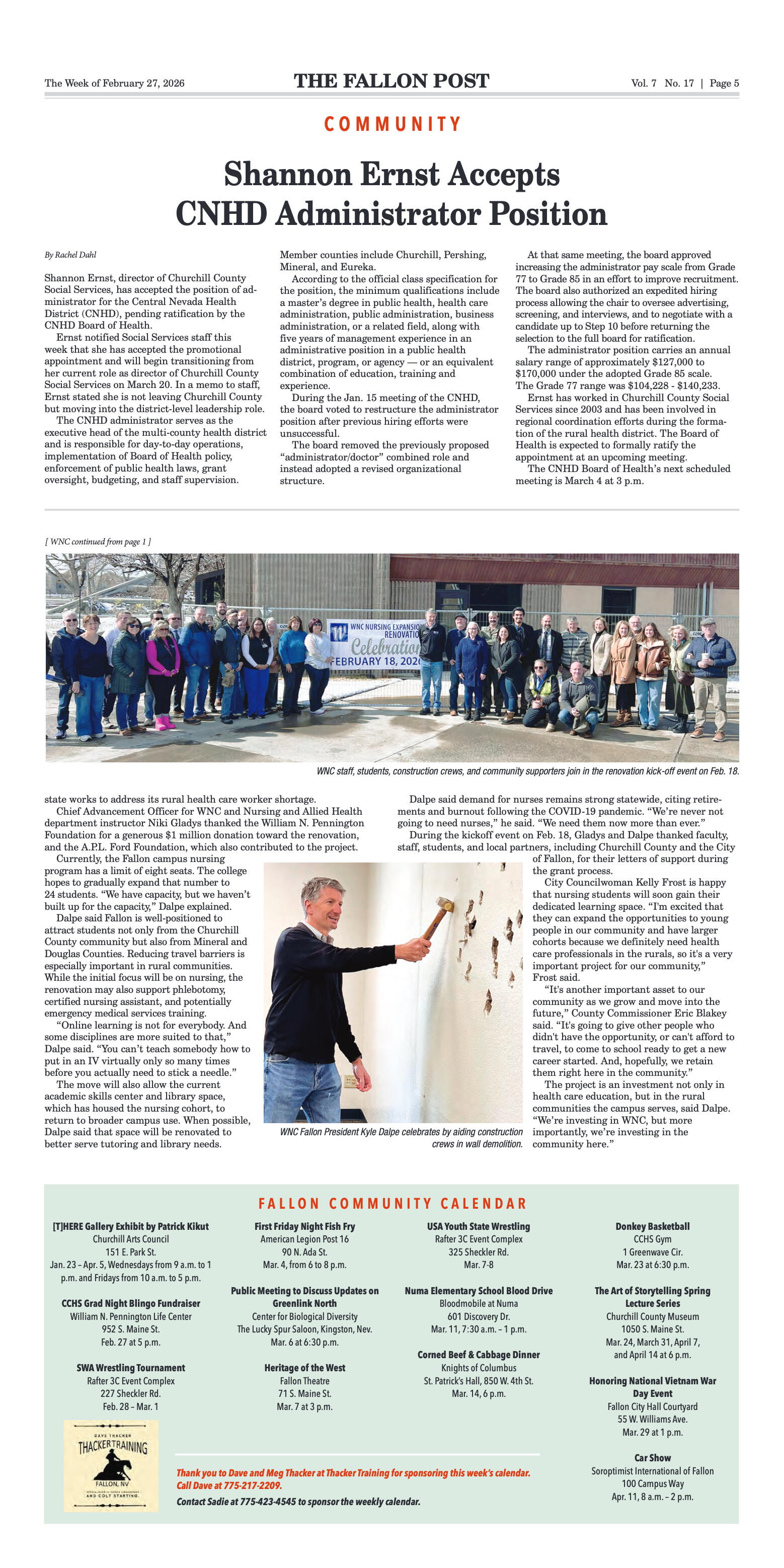


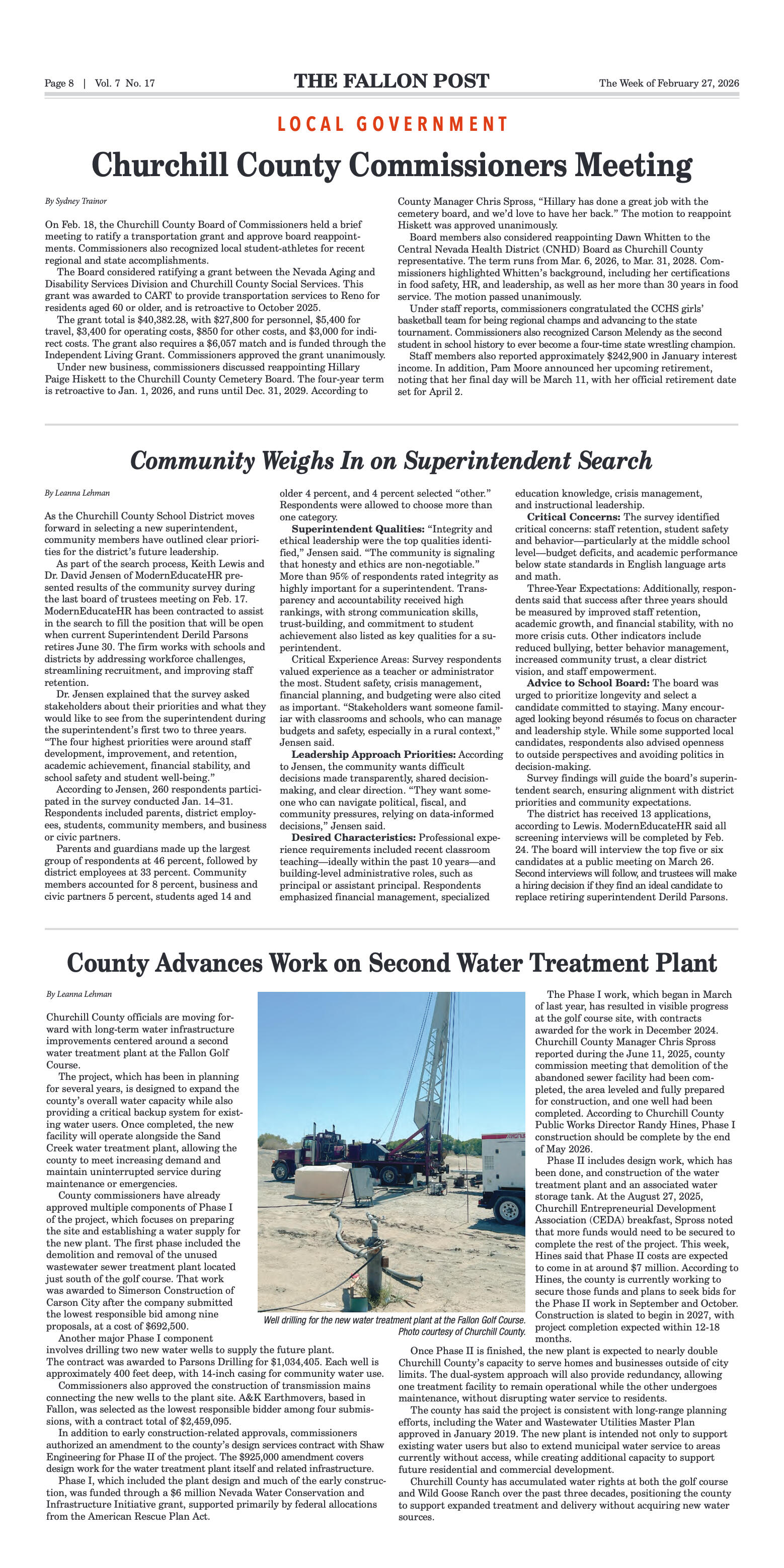
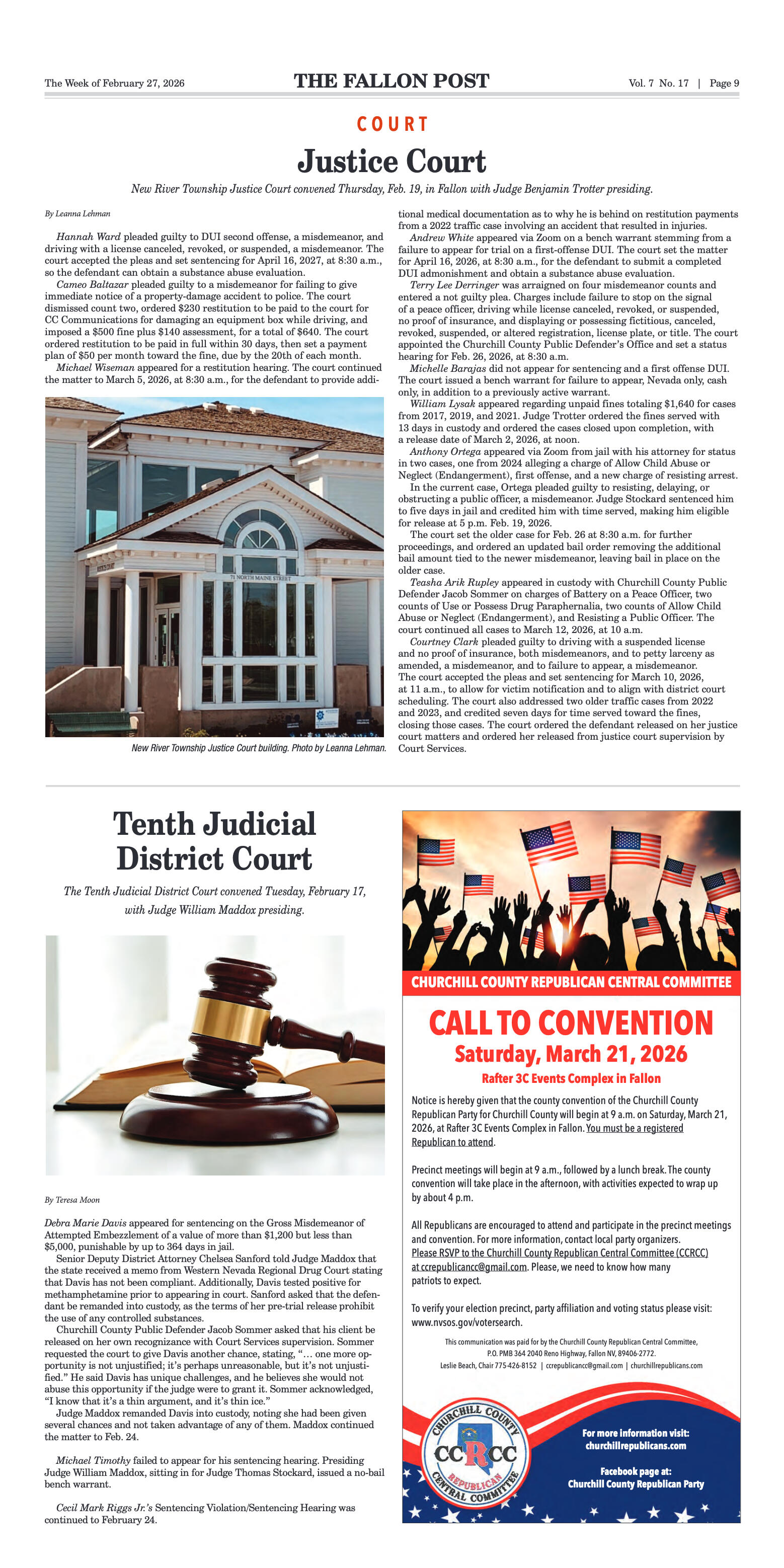
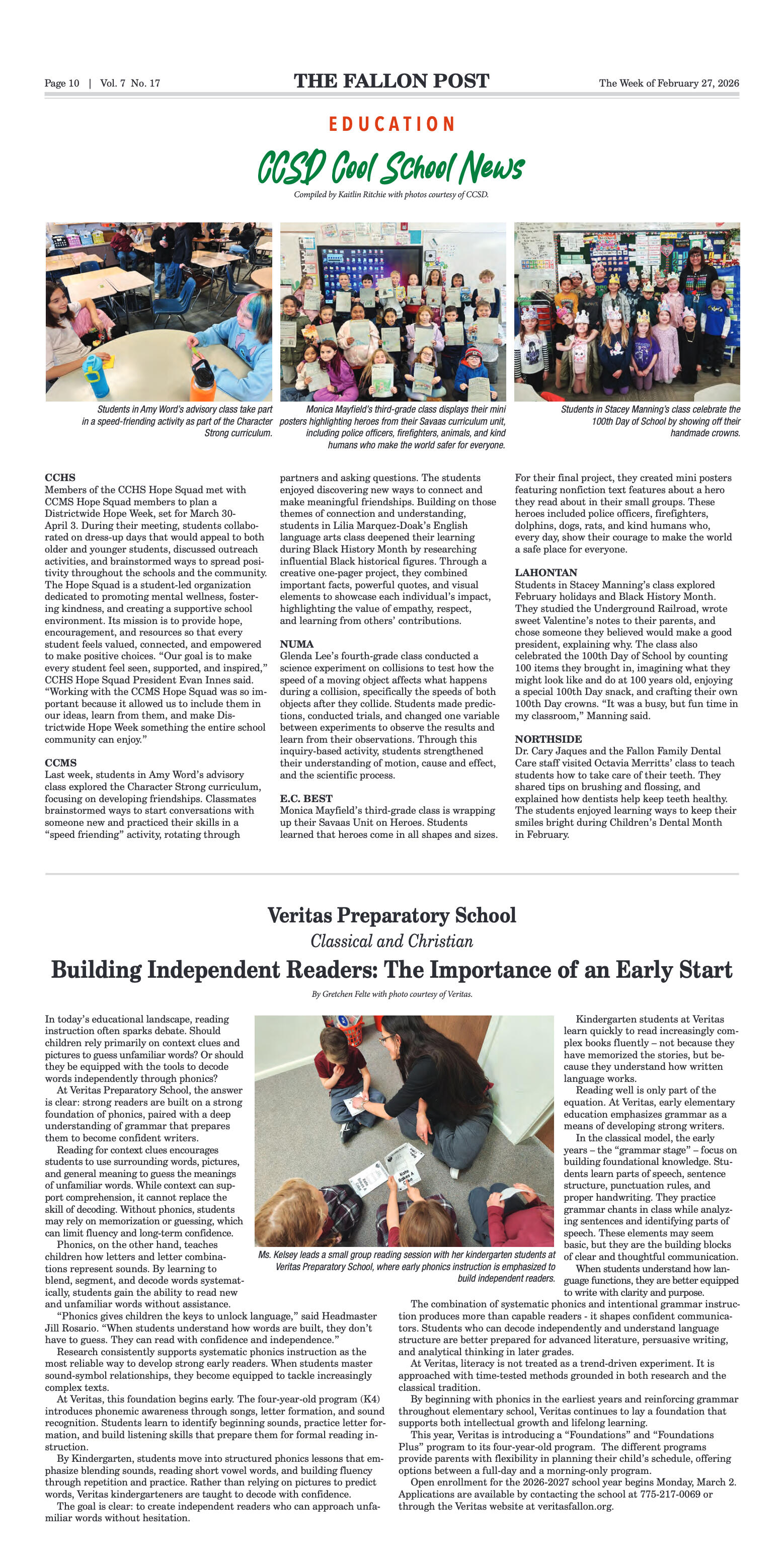
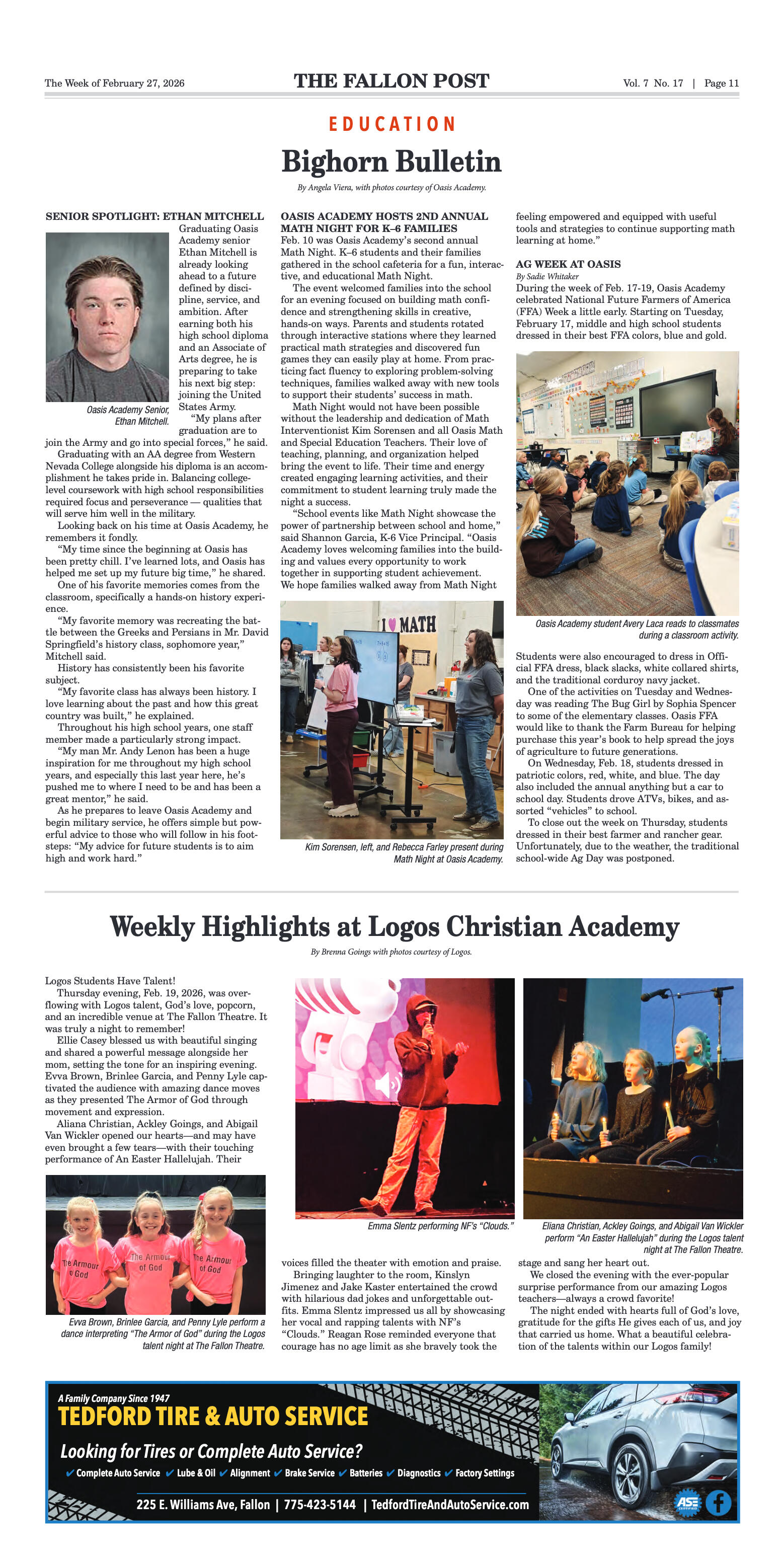
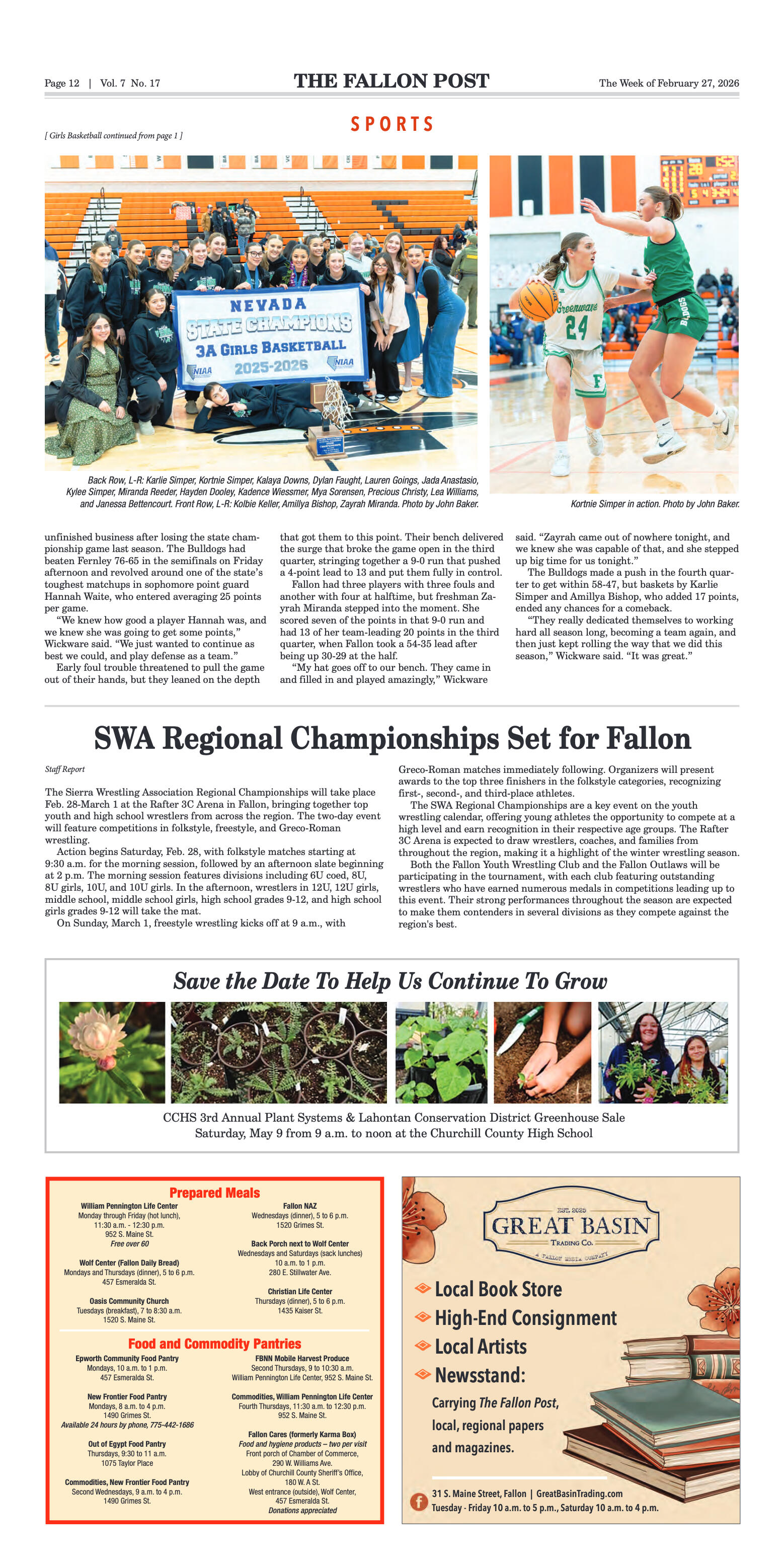
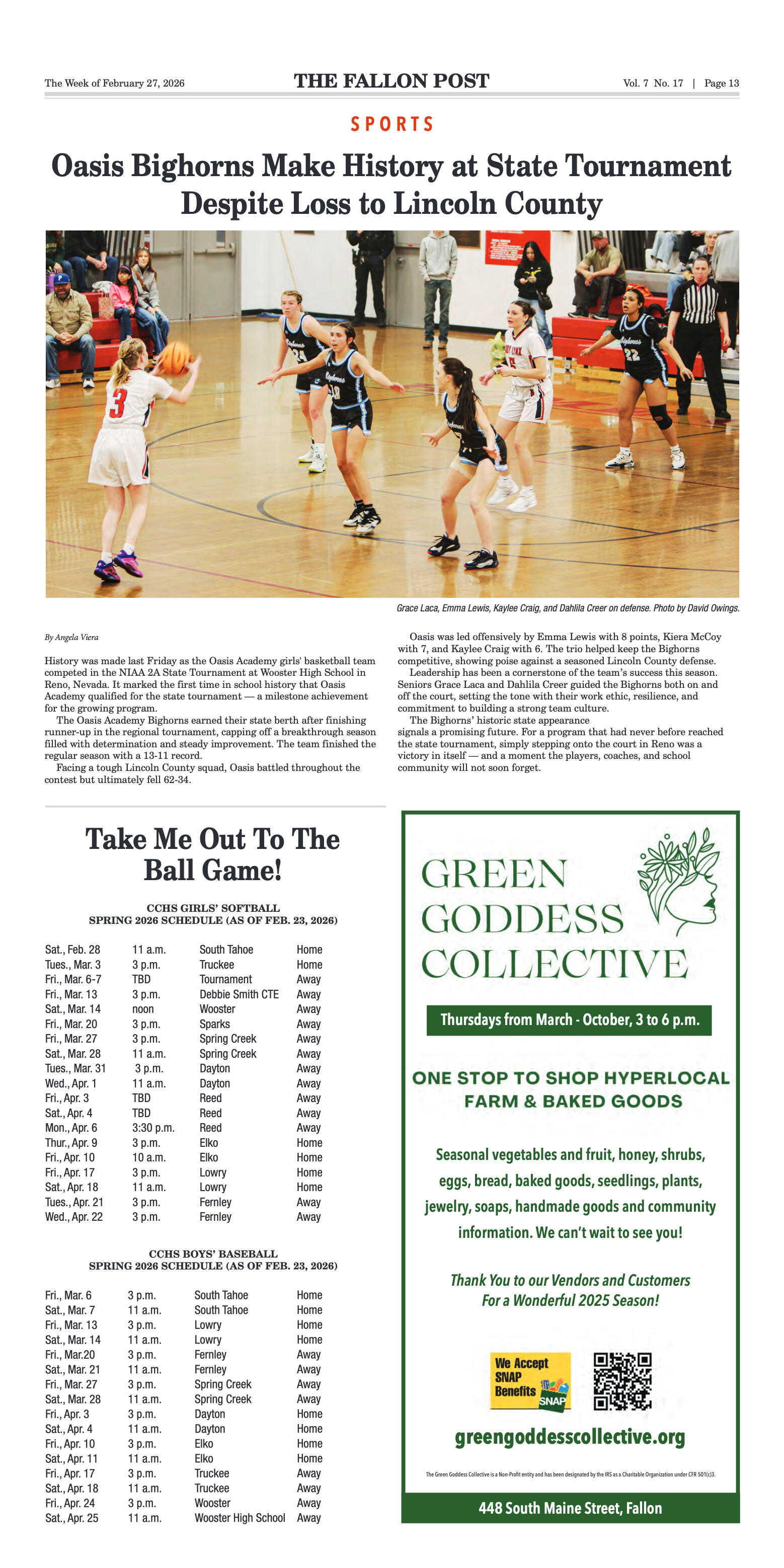
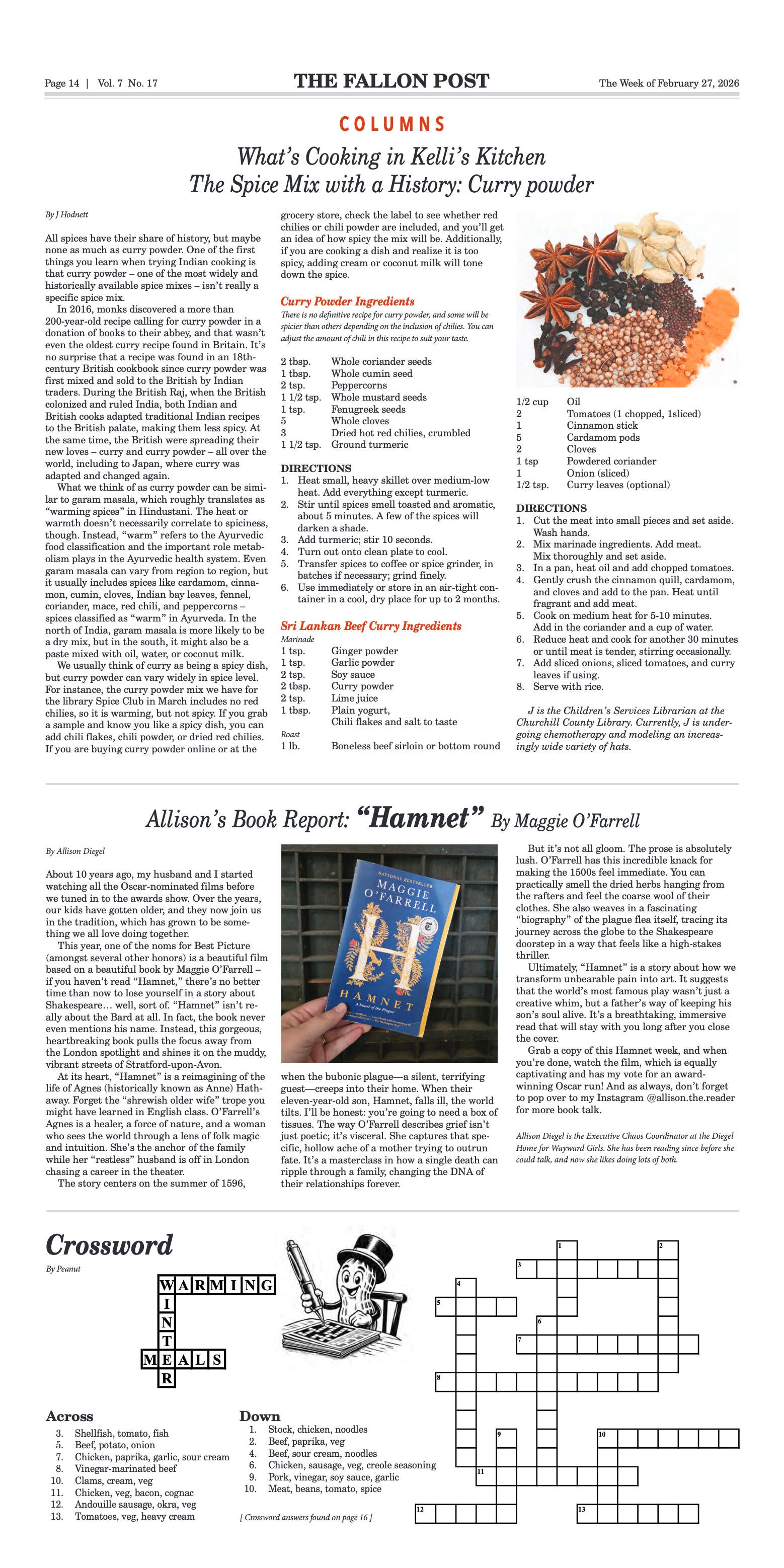
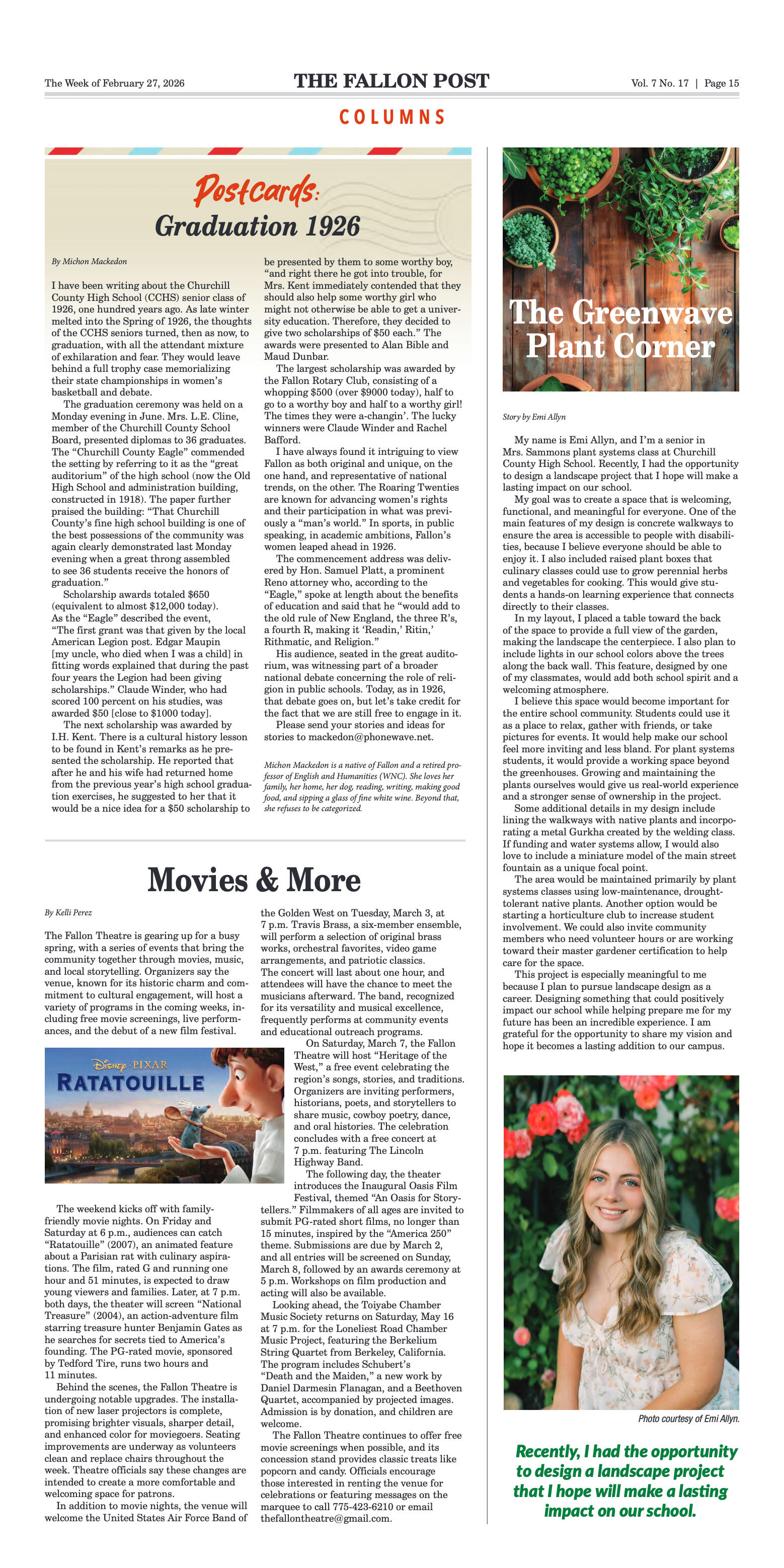
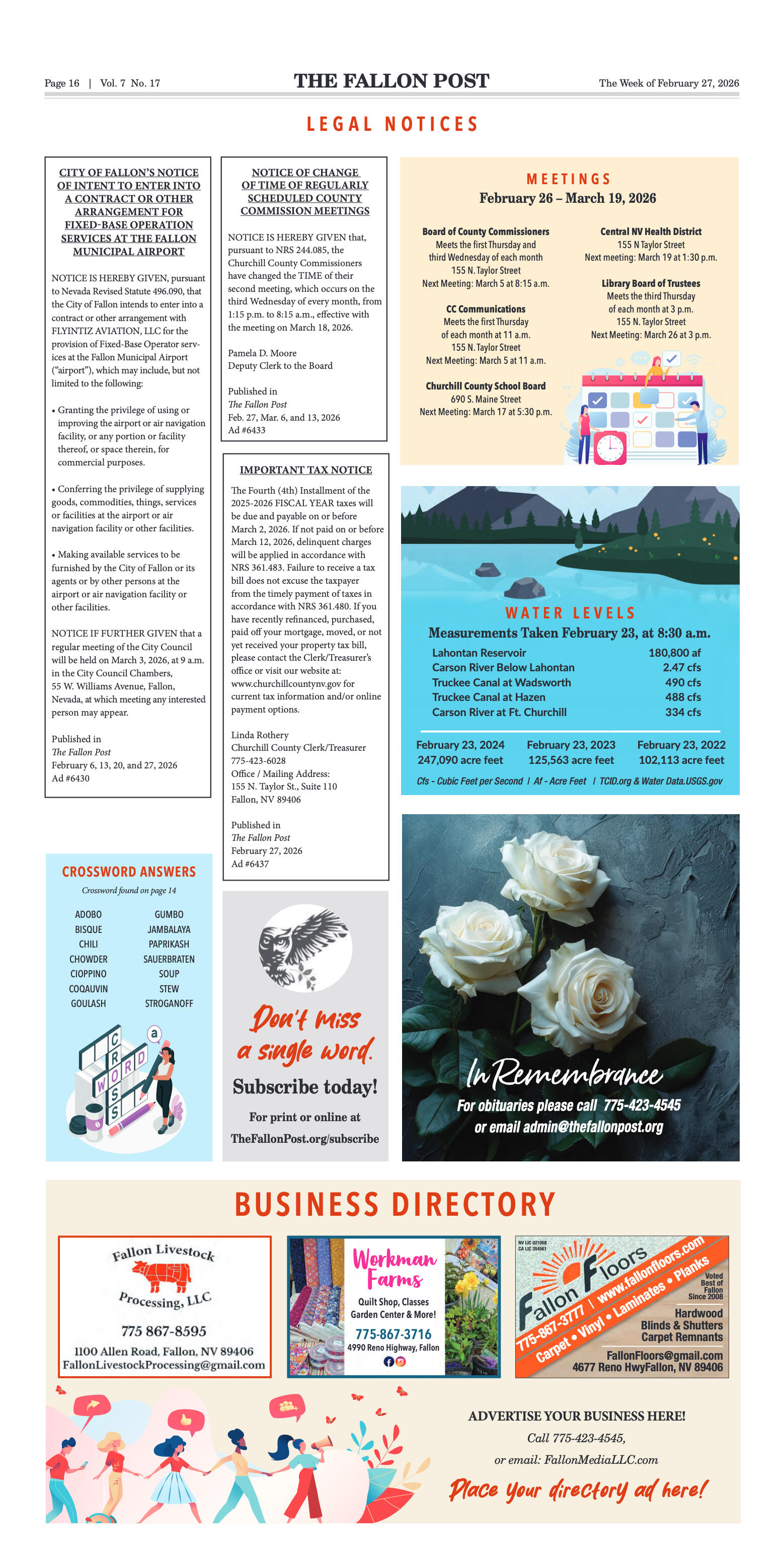























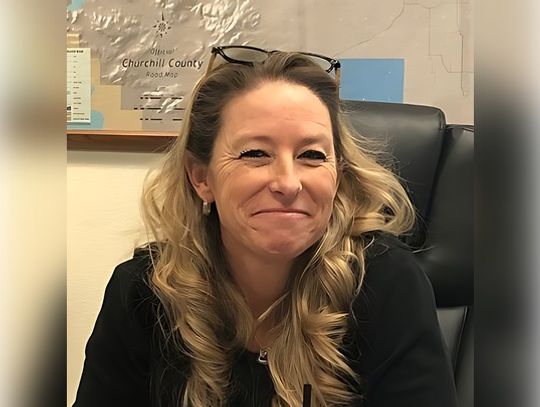


Comment
Comments